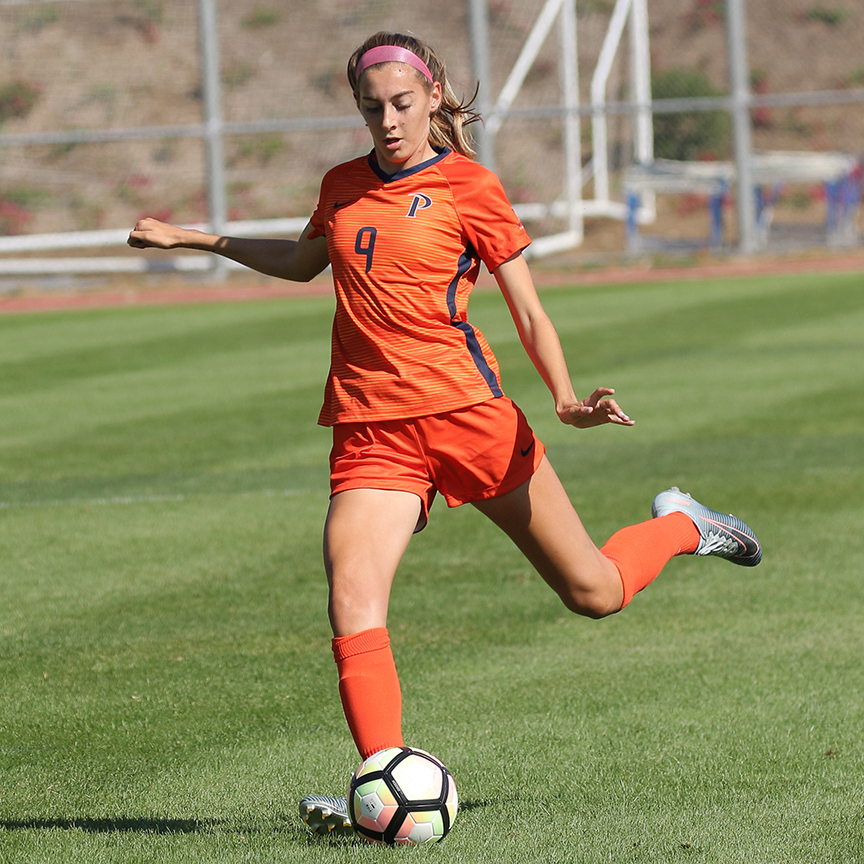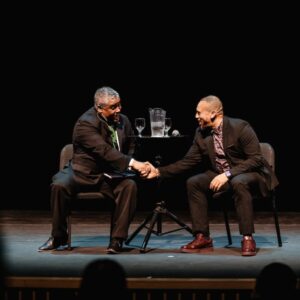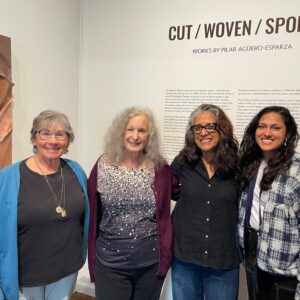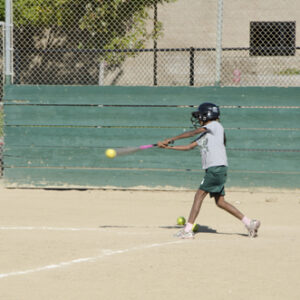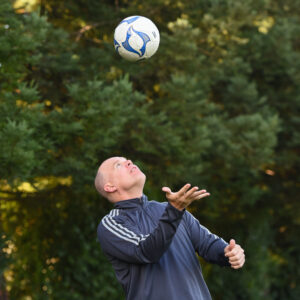This story originally appeared in the spring/summer 2020 issue of Harker Magazine.
Juggling competitive sports and rigorous academics isn’t easy, but alumni athletes say the payoff is well worth it. Not only do players improve their game – with some going on to compete in college and beyond – they also build relationships and develop skills that last a lifetime.
Balancing academics and sports “took a lot of hard work and dedication from a young age, and pushed my physical and mental limits to the extreme at times,” said Rohit Shah ’18, who played soccer at Harker and is now a midfielder on the team at Macalester College. “Nonetheless, I feel like it was worth it in terms of what I gained personally.”
Shah said playing soccer at Harker not only prepared him to take to the field in college, it prepared him for life by instilling confidence, mental toughness and resilience. Especially during his junior and senior years, he said he learned to focus on the things he could control, such as working hard and having fun, and let go of things he couldn’t control, such as results or what people thought of him.
“I realized I couldn’t change the outcomes, only my attitude,” he said, adding that he is grateful his coaches pushed him as both a soccer player and a person.
The ultimate goal of Harker athletics is that players have a positive experience and can apply lessons learned during the season to other areas of their lives, emphasized Dan Molin, upper school athletic director. “We want [players] to graduate with a greater sense of teamwork, leadership, sacrifice, kindness and respect while doing so in a competitive environment,” he said. “The lessons learned in athletics, whether they realize or not, will carry with them in life.”
Fun and friendship
One of the most rewarding aspects of sports is the camaraderie among players. Being part of a team gives students a chance to nurture friendships outside of the classroom with peers who share a passion for the same activity and are working toward the same goals. At Harker, coaches emphasize the value of building relationships, supporting each other and having fun together.
“One valuable lesson I learned over the years was that it is not all about winning and scoring goals,” said Joelle Anderson ’17, who played soccer for three years and basketball for a year during high school and is now a midfielder/forward on the soccer team at Pepperdine University. “I will forever remember the friendshipsI formed on the team and the memories I made, not only on the field, but more importantly off the field.” Anderson isn’t the only one in her family playing collegiate sports. Her brother, Jarrett ‘19, is on the volleyball team at Springfield College.
Golfer Katherine Zhu ’18, who now plays for the University of California, Berkeley, echoes that sentiment. “My favorite part of high school golf was being able to meet new people and the new relationships that were formed due to it,” she said, adding that she has very fond memories of her time on Harker’s golf team. “In every event, [coach Ie-Chen Cheng] taught us how to have fun while competing at a respectable and competitive level.”
Harker coaches also emphasize the importance of being positive role models for their teammates and classmates. “If you are a good teammate, the character and values you need are always up front,” said Butch Keller, upper school division head and longtime basketball coach, adding that a team motto is “the man beside you is more important than the man in the mirror.”
Sports also can bridge the gap between upperclassmen and lowerclassmen, since players in different grades often compete side by side. Water polo player Matthew Hajjar ’19 said he misses his Harker teammates, “from the seniors I played with as a freshman to the freshmen on the team when I was a senior.
“By the time I was a senior and a leader on the team, the most rewarding thing I could do was help a younger player learn and get better, whether it was teaching a couple of moves as the hole set (center forward) or reassessing a game after we played,” said Hajjar, who is now on the water polo team at Caltech.
Likewise, Zhu said she learned it’smore important to be the best teammate than the best player on the team. As a member of Harker’s golf team, she said she developed more compassion and sympathy for others, which has served her well in other aspects of her life. “Golf is an innately individual sport,” she explained. “Harker golf taught me how to be both a team player and a leader.”
For many, sports also ease the transition to college, giving freshmen a built-in sense of community. Since water polo is a fall sport, Hajjar arrived on Caltech’s campus a month and a half early to begin practicing, which enabled him to acclimate and make friends before classes started. Jadan McDermott ’18, who played both football and basketball at Harker, had a similar experience at Tufts University, where he is now a defensive lineman on the football team.
“One of the hardest things about starting college is being forced to make new friends and being separated from your old life. Being on the football team immediately gives you 75 people that you interact with every day and share experiences with,” he said, adding that he runs into teammates on campus all the time. “Having something like that in college has more value than can be put into words.”
But players aren’t the only ones who benefit from athletics. Team sports also help foster school spirit among the greater Harker community. Students get especially pumped up for big games, such as Harker’s Homecoming football game. In the weeks leading up to the game, anticipation builds among the entire Harker community, with spirit days, a rally and a pre-game tailgate party, among other activities.
“Every week, we received support from our classmates and teachers in preparation for our games,” recalled McDermott. “There was no better feeling than going down the hallways and getting a ‘good luck today!’ or remarks of that nature. Playing in front of friends and family embodies a big aspect of what makes sports fun.”
In March, Harker’s boys soccer team won the section championships for the first time in school history, as did both the boys and girls volleyball teams last year – creating lasting memories for both players and the Harker community.
“The school pride and spirit was unlike anything we’ve seen,” recalled Molin. “It’s not just about the teams succeeding and competing at a high level. I place a lot of value in what that brings to the school community in the form of spirit, pride and fun.”
Training for life
High school is a challenging time for many students as they begin to discover who they are and what matters to them. Sports reinforce the idea that by doing things well, one will be rewarded, said former Harker head football coach Michael Tirabassi.“These lessons can be expanded to life lessons on interpersonal relationships, leadership, etc.,” he said. “In general, I think high school sports can help athletes define their principles, which they will carry with them the rest of their lives.”
Alumni athletes agree that playing sports at Harker was a great training ground for life, helping them develop valuable skills, including time management, stress management and professionalism. Balancing demanding academic and sports schedules forces athletes to set priorities and manage their time effectively.
“My days were pretty packed because I wanted to excel in both [academics and golf ],” said Zhu, explaining that since she spent two to three hours a day practicing with the golf team, she had to use free periods to finish homework. “Efficiency is key!”
As a student athlete, you cut out unnecessary activities and “find new ways to create time for work,” added McDermott. “Whether it’s working while you are waiting to get picked up after practice or doing worksheets before conditioning, it’s essential to use any spare time for getting your work done.”
Harker students who succeed both on and off the field are “masters at managing their time,” said Keller. “When they go to college, they are prepared to face the real life pressures of prioritization.” In setting priorities, athletes also learn to make sacrifices. Through this process, Anderson said she became a better soccer player and a better person.
“There were a lot of sacrifices I had to make, with my social life specifically, in order to keep up in school and continue to excel in soccer, but it paid off in the end,” she said. “All the sacrifices I made during high school felt worth it in the long run because of the amazing opportunities it gave me to take my soccer career to the college level.”
Anderson said she is grateful that her Harker coaches pushed her to be the best version of herself both on and off the field. She has found a similarly supportive environment at Pepperdine, where the coaches often remind players that they are trying to develop “women of character,” not just stellar athletes or a game-winning team.
Tirabassi said he and his fellow coaches urged players to “live their lives motivated by the impact they can make” on others, including their family, community, teammates and friends. The more effort players put into positively impacting those around them, the more successful they will be in sports and in life, he said.
“Many sports teams have negative connotations with their behavior or demeanor,” McDermott explained. “Coach Tirabassi had our team challenge those misconceptions. He helped the players understand that being a student athlete means excellence on and off the field.”
Likewise, Zhu said golf coach Cheng instilled the importance of being professional, “and enforced it everywhere, whether it was at country clubs or even on snack runs!”
Pushing the limits
Many athletes dream of playing their sport in college, but not all have the required discipline. Keller said he is proud of Harker athletes who made this dream come true. Their dedication pays dividends both on and off the field.
“Being an athlete anywhere, not only Harker, is one of the avenues by which young people are able to build resilience,” said Keller. “In the middle of a game or practice, you have to accept the events and adjust in the moment. These are real life experiences.”
Those often challenging experiences also strengthen the team. “We faced the same adversity whether it be extremely hot days, excessive conditioning or even a tough loss,” McDermott recalled. Those experiences formed an “unbreakable bond” among teammates, he added.
As a water polo player at Harker, “the biggest takeaways were perseverance and dedication,” Hajjar said. While some people pressured him to quit the team to focus on his schoolwork, he was determined to manage both well, adding that his life is more balanced and organized during the water polo season. He said water polo gives him the opportunity to de-stress and focus on something other than school.
“When I get out of the pool, I’m refreshed and ready to tackle my studies with a clear and improved mindset,” he said. “I rarely waste time, and since I’m working out, I make sure to get enough sleep and stay healthy.”\
Even those who ultimately leave competitive sports say the experience made them stronger and more confident.
Mahi Gurram ’19 played both softball and golf at Harker. She joined the softball team her freshman year, having never played before, which she said was “one of the best decisions” she made at Harker. Her experience as a rookie and in the years that followed gave her the confidence to try crew as a freshman at Colgate University.
“Harker’s teams taught me to push myself past the limits I set for myself,” she said. “Walking on to the softball team is what inspired me to walk on to the rowing team. I thought it was worth trying out a new sport because of how much I enjoyed playing softball at Harker.”
Although she enjoyed rowing and said the workouts taught her to “dig deep” and push herself, she ultimately made the difficult decision to quit the team to focus on her pre-med studies.
“I was definitely stressed out academically, but it was a very rewarding experience,” she said. “I enjoyed my brief time on the [crew] team, because it taught me that I am capable of things I didn’t know I could do.”
Leveling up
While playing sports has many benefits, a key motivation for most players is, of course, to improve their game. Both individual players and teams at Harker have set records and earned many accolades over the years. Many Harker players have gone on to play sports in college, some earning scholarships to do so, and a few alumni have even gone pro.
For example, Jason Martin ’07 played semi-pro baseball for several years. Tanya Schmidt ’08 played pro volleyball in Europe for two years between college and graduate school. And one of Harker’s most notable alumni athletes, golfer Maverick McNealy ’13, went pro in 2017.
“We’re so proud of all of our athletes who have pursued their sport beyond high school,” Molin said. “Though it’s not the main goal of our program, we want to celebrate their achievements and let it be known that athletes at Harker can, if they work hard, continue their athletics after high school.”
While few college athletes make a career of their game, most anticipate sports will always be a part of their lives, noting the benefits of staying active on their health and well-being.
“Even if I may not be able to compete at a professional level, I hope to have golf in my life in some form because of all the happiness and joy it’s brought me thus far,” said Zhu.
Jennifer Maragoni is a freelance writer and editor based in Folsom.
